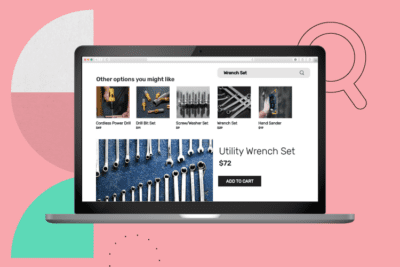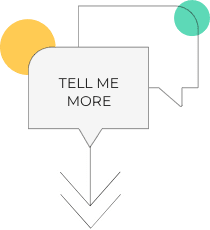
3 Ways B2B Website Personalization Helps Highlight Unique Strengths Online
In recent years, B2B companies have been advised to adopt tactics like website personalization from the world of B2C retail if they want to thrive in the era of omnichannel commerce. But given corporate buyers’ preference for experiences tailored to their company needs, B2B companies would do well to emphasize — not eliminate — the unique characteristics of their business if they want to stand out from the crowd.

There are ample opportunities for B2B website personalization
It’s true that B2B buyers increasingly desire convenience and accessibility.
According to research from Gitnux, 77% of B2B buyers will not make a purchase without personalized content. Amazon is making strides in B2B eCommerce with a business version of its dominant eCommerce site; from which these reviews, recommendations, and Prime shipping service shape consumers’ online expectations for product content, convenience and savings.
But as they strive to strategically incorporate personalization into their marketing strategy, B2B companies risk losing out on what makes them unique. The current push to provide generic B2C-like experiences runs contrary to B2B business’ long tradition of customized customer relationships, from tailored catalogs to unique payment terms.
Corporate buyers seek out B2B sellers that can adopt this one-to-one personalization approach online. Gitnux also found that 83% of buyers believe that personalization enhances the purchasing experience. Organizations can successfully implement B2B personalization by focusing on buyer roles and using that information to deliver:
#1: Products and content attuned to the phase of the B2B purchase cycle
Based on prior interactions and predictive intelligence, B2b website personalization pinpoints whether site visitors are in research mode or ready to buy; this aspect is imperative to present them not only with relevant content, but with live sales or support connections. Post-purchase, timely replenishment reminders and upgrade offers can spur re-engagement.
#2: A custom B2B catalog experience
Automated personalization tools can combine business rules with behavioral insights to present products and recommendations within pre-set parameters, along with custom pricing and bundling options. Predictive personalization capabilities can also flag potential new product categories of interest — helping B2B suppliers capitalize on cross-divisional sales opportunities.
#3: Tailor the purchase process to individual corporate customers
B2B merchants can customize the online checkout process to accommodate customer-specific needs such as P.O. generation and purchase approval routines, while personalization software tools in tandem with saved account data can enable quick access to tailored re-ordering options.
How is your B2B business harnessing website personalization to serve corporate customers? Learn more about how Monetate can help.